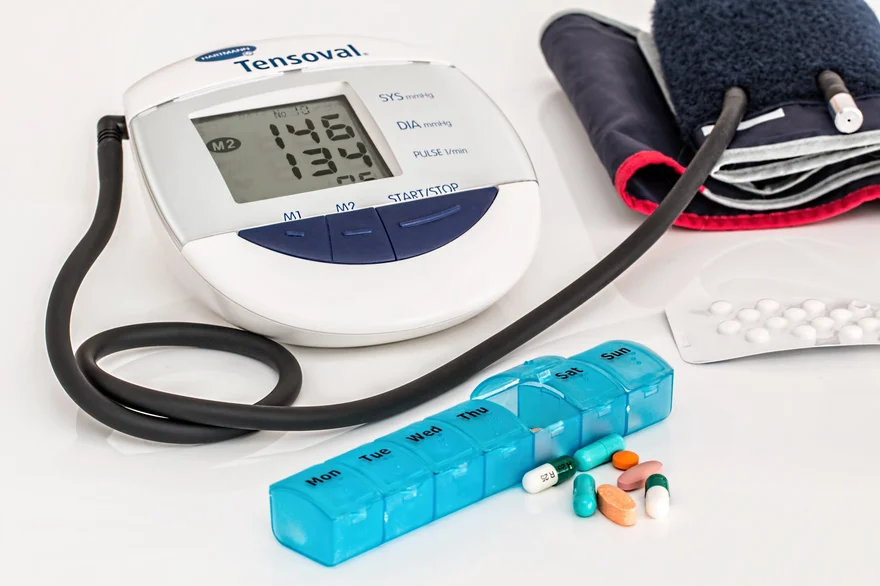Preventive Healthcare
Understanding Ovarian Cancer: Causes, Types, Prevention and More
2305 Views
0

Women should be aware of ovarian cancer, in addition to breast cancer. This is a dangerous type of cancer that affects almost 4% of women in India. Although this number is small, it's important to be careful of ovarian cancer. In 2020, ovarian cancer became the third most common cancer among older women.
To raise awareness of ovarian cancer, a group of leaders established World Ovarian Cancer Day in 2013. It's observed on May 8 every year. The purpose of this day is to educate women, particularly older women, about the physical changes that happen after menopause. Survivors of ovarian cancer share their experiences to spread awareness.
Ovarian cancer is rare in younger girls between 16 to 25. However, the risk of ovarian cancer increases as a woman gets older. Women who are over 40 and have gone through menopause are more prone to ovarian cancer. The likelihood of getting ovarian cancer is higher between the ages of 45 to 65.
More than 200 organizations have come together to raise awareness of ovarian cancer. This is a global healthcare event conducted by the organizations. More than 20000 women die from ovarian cancer every year, and nearly 30000 women get diagnosed. The organizer of World Ovarian Day encourages governments and institutions to come up together and establish a healthy society.
What is Ovarian Cancer?
Ovarian cancer is a medical emergency. When the cells of the ovaries or the fallopian tubes attached to them abnormally multiply beyond their normal range, ovarian cancer comes into being.
The ovary and the fallopian tubes are the parts of the female reproductive system. There are two ovaries in every female body. The ovaries produce eggs or ova and sex hormones like estrogen and progesterone.
A female body undergoes several changes at different stages of life. Menopause, the cessation of the menstruation cycle, brings major changes in a woman's body. It adds more risk of developing ovarian cancer.

Symptoms of Ovarian Cancer
Cancer is a slowly spreading disease. The size of the tumour grows slowly but steadily. Ovarian cancer does not show any symptoms in particular. But some changes can be detected in the normal eye. If you or your near ones are over 40 years of age, make sure you check on these changes:
- Sudden bloating
- Abdominal pain
- Losing appetite or any eating disorder
- Bleeding after menopause
- Unusual bleeding outside your menstrual cycle
- Unusual vaginal discharge
- Frequent urination
- Diarrhoea
- Constipation
Do not waste time if you experience any of the above or any other symptoms for a prolonged period. It is high time you need a consultation with a gynaecologist. The earlier you go for screening, the higher will be your chances of surviving.
Causes of Ovarian Cancer
Cancer biologists have yet to detect the exact reasons for ovarian cancer or any cancer. But ovarian cancer is seen among the patients who fall under these criteria:
- Older Age: Old age comes with menopause. The more you age, the more risk of getting ovarian cancer.
- Sterile: If you have never been pregnant or birth a child at a later age, then you might get affected by ovarian cancer.
- Family Record: Gene plays a poignant role in cancer formation. Women whose biological family has a history of cancer diseases are at higher risk.
- Obesity: Obesity increases the risk of ovarian cancer.
- Endometriosis: In this case, additional tissues grow outside the lining of the uterus.
Types of Ovarian Cancer
So far, three types of ovarian cancer have been detected. The types of ovarian cancer have been categorized, determining the origin of the cancer cells.
- Stromal Tumour: This type of tumour is diagnosed at a comparatively earlier stage than other ovarian cancers.
- Germ Cell Tumour: Germ cell tumour is a rare ovarian cancer affecting younger women.
- Epithelial Ovarian Cancer: This is the most common cause of ovarian cancer. It has two sub-types:
- Serous carcinoma
- Mucinous carcinoma
What are the Stages of Ovarian Cancer?
Cancer biologists have categorised ovarian cancer into four stages. These divisions were made to improve the treatment process based on cancer spreading.
Stage I: The first stage is again divided into three sub-stages:
- Stage IA: At this stage, either one ovary or one fallopian tube gets affected by cancer.
- Stage IB: Cancer has spread in both the ovaries and fallopian tubes.
- Stage IC: Cancer has already affected your ovaries and fallopian tubes at this stage. Now it has spread out of the ovary on the surface of the peritoneal cavity.
Stage II: Stage II is also divided into further sub-stages:
- Stage IIA: At this stage, cancer affects your uterus.
- Stage IIB: Stage IIB detects that cancer has spread beyond your uterus. It is affecting the adjacent parts of your pelvis.
Stage III: The third stage of ovarian cancer includes three more sub-stages:
- Stage IIIA: Cancer has affected your abdomen, or lymph nodes are exposed to it at this stage.
- Stage IIIB: In this sub-stage, cancer is in your lymph nodes. The size of the tumour is approximately 2 centimetres now.
- Stage IIIC: The size of the tumour has increased to more than 2 centimetres. It has grown outside your pelvis. Your other organs can also be affected now.
Stage IV: This is the last stage of ovarian cancer:
- Stage IVA: Cancer has reached your liver or spleen.
- Stage IVB: This is the ultimate stage of ovarian cancer. At this stage, your heart is prone to get affected by cancer if not diagnosed earlier.
Things to Keep in Mind to Prevent Ovarian Cancer
There are a few ways through which you can prevent cancer, but this doesn't give a guarantee.
- Maintaining a healthy lifestyle
- Exercise regularly
- Add vitamins D and A to your regular diet
- No alcohol and tobacco consumption
- Limit caffeine intake
- Use contraceptive pills, but use them sparingly
- Breastfeed for at least 5 years
- Healthy Pregnancy
Diagnosis and Treatment of Ovarian Cancer
The following tests diagnose ovarian cancer:
- Blood test
- Laparoscopy
- Surgical tests
- Imaging tests
- CT Scan
- MRI
- Pelvic ultrasound
- PET scan
Ovarian cancer treatment depends on your cancer's condition and stage.
- Chemotherapy
- Surgery
- Targeted therapy
- Radiation therapy
- Hormone therapy
How Should You Take Care of It?
There is no such precaution that you can take to avoid ovarian cancer.
- You can follow a healthy routine like a well-balanced diet.
- Exercise regularly to reduce obesity.
- Cut down on drinking and smoking. They are up to no good.
- Get a regular health check-up.
- Be careful after menopause and note any changes.
World Ovarian Cancer Day Theme for 2023
The report highlights that 2/3 of ovarian cancer cases occur in poor and underprivileged countries. Early screening is crucial to reduce mortality rates, but only 20% of women have access to it due to a lack of awareness, proper tests, and screening.
To address this issue, World Ovarian Cancer Day's theme this year is 'No Women Left Behind.' Ovarian cancer survivors and oncologists will use different media platforms to educate women and conduct rallies and meetings about risk factors, symptoms, diagnosis, and treatment.
Conclusion
To summarise, ovarian cancer is the 7th most common cancer that happens to women and the 8th most common cause of death worldwide. More than 2 lakh people die from cancer every day. Target Ovarian Cancer (organisation) launched World Ovarian Day in 2013. On May 8, the world comes together to raise ovarian cancer awareness. Doctors and patients wear teal-coloured clothes and share their stories of treatments on social media. Teal is the colour of ovarian cancer month.
The government supports the organizations to conduct awareness campaigns in every part of the country, especially in village areas. However, over the years, around 200 organizations have come together.
Metropolis Healthcare is one of the leading diagnosis and pathological chains in India. They have the best experienced and skilled employees to conduct the tests. Thus, you can visit Metropolis Healthcare labs for any test. They provide the best facilities, such as:
- Special attention to every patient.
- One-time sample collection.
- Accurate test reports without any inconvenience.
- Availability of all modern technologies.
- Take good care of your health.
- Keep a note of the hormone changes.
- Regular check-ups after menopause.
Visit Metropolis Healthcare/labs for any diagnosed or pathology test.























 WhatsApp
WhatsApp